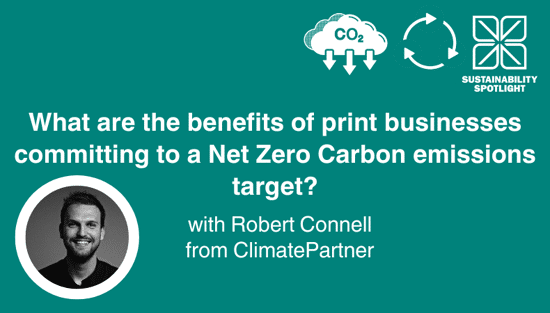What questions should you ask new sustainability stakeholders?

Steve Lister discusses upcoming sustainability stakeholders for 2024 and discover vital questions to ask them. In a shifting landscape, proactive engagement is key. Learn how to align with new partners' goals and navigate evolving expectations, ensuring your organization stays at the forefront of environmental and social responsibility.
The Evolving Landscape of Sustainability Stakeholders
The traditional notion of a siloed sustainability department is rapidly becoming obsolete. As environmental and social concerns intensify, a broader spectrum of stakeholders is now integral to driving sustainable initiatives. This shift necessitates a more holistic approach, where collaboration across departments is essential to achieve meaningful impact. This is particularly true as new stakeholders emerge, such as Chief Sustainability Officers (CSOs), who are increasingly taking on a pivotal role in shaping corporate sustainability strategies.
These C-suite executives are responsible for overseeing and integrating sustainability into every facet of the business, from product development to supply chain management and print procurement. Beyond the traditional roles, a diverse range of departments are now recognized as key players in the sustainability journey. By engaging with these stakeholders, organizations can foster a culture of sustainability, identify innovative solutions, and mitigate risks.
C-Suite/Senior Management
C-suite executives set the strategic direction of the organization, including its sustainability goals. Their commitment is crucial for allocating resources, prioritizing sustainability initiatives, and ensuring accountability. Key questions to ask include:
- What is the company's long-term vision for sustainability?
- How does sustainability align with the overall business strategy and financial goals?
- What are the top three sustainability priorities for the next fiscal year?
- How will sustainability performance be measured and incentivized?
Sustainability Directors
Sustainability directors are the champions of sustainability within the organization. They develop and implement sustainability strategies, track progress, report on performance and review materials used in print marketing. Key questions to ask include:
- What are the most significant sustainability challenges facing the organization?
- How can we integrate sustainability into daily operations and decision-making?
- What are the key performance indicators (KPIs) used to measure sustainability progress?
- How can we collaborate to improve the accuracy and efficiency of sustainability data collection?
Sales & Marketing
Sales and marketing teams interact directly with customers and can influence print purchasing decisions based on sustainability factors. Key questions to ask include:
- How can we incorporate sustainability messaging into print marketing campaigns and sales pitches?
- What are customer expectations regarding sustainable print, marketing activations and services?
- How can we identify and capitalize on emerging sustainability print trends in the market?
- How can we collaborate to develop sustainable print product offerings and printed packaging?
HR & Finance
HR and finance teams play crucial roles in attracting and retaining talent, managing costs, and making informed investment decisions. Key questions to ask include:
- How can we integrate sustainability into employee recruitment, training, and development programs?
- What are the financial implications of sustainability initiatives, both costs and potential savings?
- How can we measure the return on investment (ROI) of sustainability projects?
- How can we align employee compensation and incentives with sustainability goals?
Operations & Logistics
Operations and logistics teams are responsible for the day-to-day operations of the business, including energy consumption, waste generation, and supply chain management. Key questions to ask include:
- What are the biggest opportunities for energy efficiency and waste reduction in our operations?
- How can we improve the sustainability of our supply chain, including sourcing and transportation?
- What are the potential risks and opportunities associated with climate change for our operations?
- How can we collaborate to implement innovative technologies and practices to reduce our environmental footprint?
Procurement
Procurement teams have significant influence over the sustainability of the supply chain, including sourcing print service providers, materials, managing suppliers, and reducing print waste. Key questions to ask include:
- How can we identify and select suppliers with strong sustainability practices?
- What are the key sustainability criteria for supplier selection and evaluation?
- How can we collaborate to reduce the environmental impact of print, packaging and transportation?
- What are the emerging trends in sustainable print procurement, and how can we stay ahead of the curve?
Emerging Sustainability Stakeholders for 2024
As the sustainability landscape continues to evolve, new stakeholders are emerging to drive innovation and accountability. Some of the key emerging stakeholders to watch in 2024 include:
- Investors and Financial Analysts: These stakeholders are increasingly scrutinising companies' ESG performance and its impact on long-term financial value.
- Regulators and Policymakers: Government bodies are enacting stricter regulations and incentives to promote sustainable practices.
- Consumers and Customers: Consumers are becoming more aware of sustainability issues and demanding products and services that align with their values.
- Technology Providers: Technology can play a crucial role in enabling sustainability initiatives, from data analytics to automation.
Key Takeaways
- Sustainability is no longer a standalone function; it's a core business imperative that requires collaboration across all departments.
- Effective communication and engagement are essential to align stakeholders and drive collective action.
- By asking the right questions and fostering open dialogue, print service providers can unlock the full potential of their sustainability print initiatives.
Staying informed about emerging print & material trends and engaging with new stakeholders is crucial to remain competitive and resilient in a rapidly changing world.
Recent news

Empowering the Print Community – Insights from Suzi Ward, MD of FESPA UK
In this podcast episode, Debbie McKeegan interviews Suzi Ward, the Managing Director of Fespa UK, discussing the evolution of the association, its role in supporting the print industry, and the importance of community engagement.
.png?width=550)
The European Union is driving massive sustainability change
The EU's ambitious Green Deal, aiming for climate neutrality by 2050, drives significant sustainability changes. Businesses worldwide, especially printers, must adapt to complex EU legislation. Compliance creates challenges but also new opportunities in areas like packaging and signage.

What are the benefits of print businesses committing to a Net Zero Carbon emissions target?
We speak to Robert Connell, Senior Commercial Sustainability Manager at ClimatePartner who who offer solutions along the net zero cycle to support business’s effort in corporate climate action. In this discussion we discuss the importance and the process and benefits of businesses committing to a Net Zero Carbon emissions target.

6 Sustainable Printing Practices Changing the Game in Textile and Apparel Decoration
The textile industry is shifting towards sustainability. Innovations like waterless and digital printing, eco-friendly inks, and recycled materials are reducing waste. AI and automation optimise production, while circular models promote reuse. Consumer demand for transparency drives this change, making sustainable practices essential for future-focused brands.